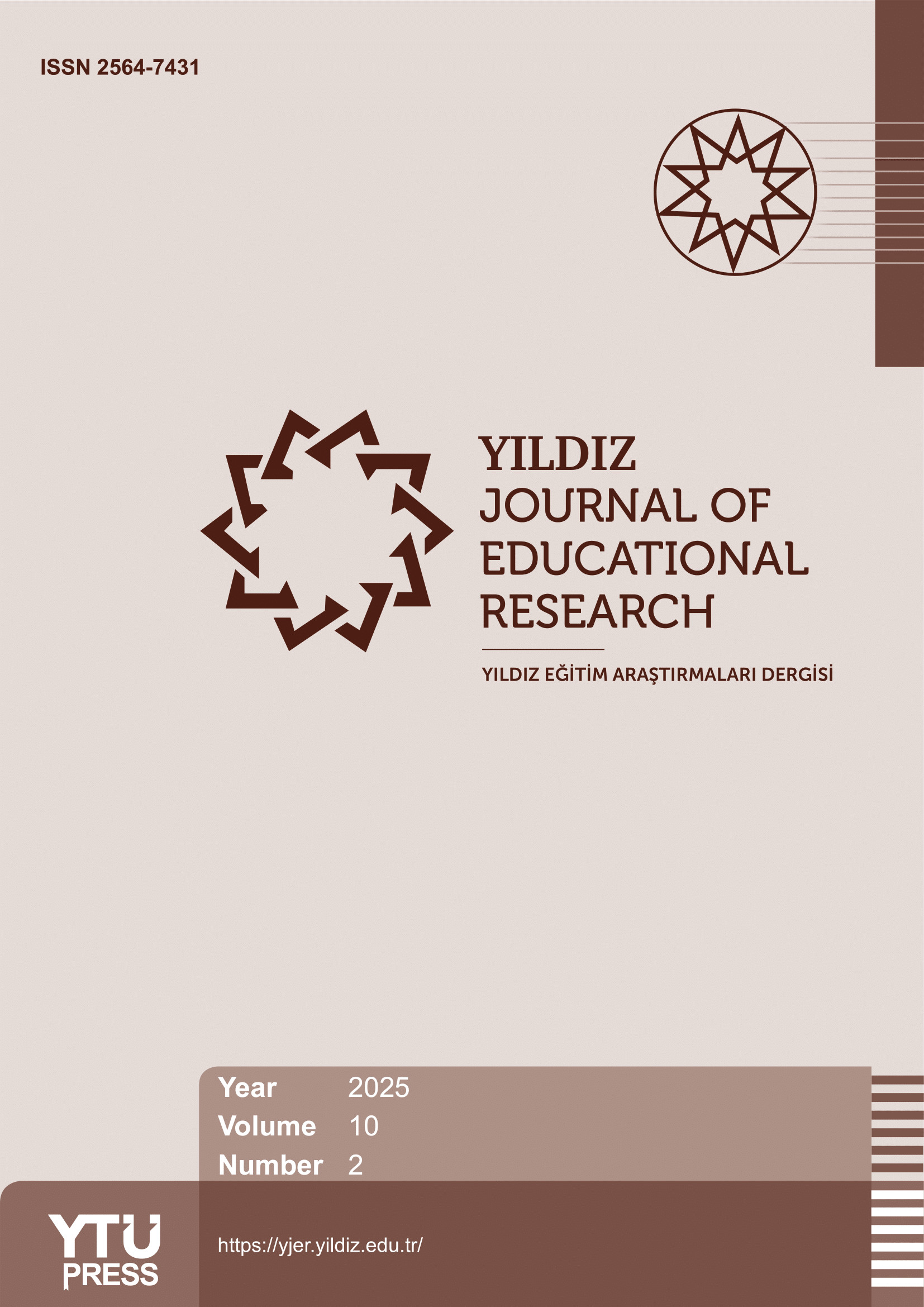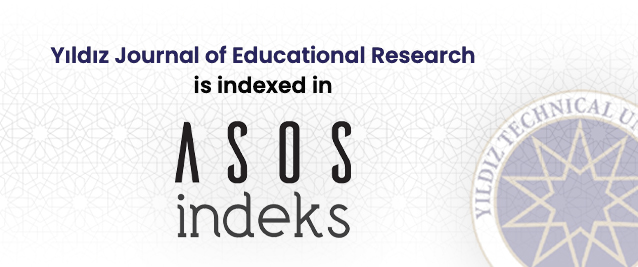Abstract
The aim of this research is to determine the level of the leadership of the education administrators according to teachers’ perceptions. In the research Quantitative Research Technique was used. The data were collected through the "Elementary School Principals’ Technology Leadership Role Scale” consisting of 29 items. The scale had four sub-dimensions such as "human centrism, vision, communication and cooperation and support’’. The effects of teachers’ opinions are examined through the variebles of 'gender, seniority, educational status and school population. The research data were obtained from 445 teachers who were selected from official primary and secondary schools in the province of Kecioren in the province of Ankara by using appropriate sampling method. In order to analyze data, arithmetic mean, standard deviation, t-test, one way ANOVA and Pearson Correlation tests were used. The findings of the research show that teachers find the administrators’ technology leadership competence "Partly adequate" (x ̅=3,25). The highest level of behavior that school administrators have is "Human Centeredness (x ̅ = 3,31)"; and behaviors at the lowest level are the behaviors of "Communication and Cooperation (x ̅ = 3.18)" dimension. It was determined that the education status variable was a significant factor in the teachers' perceptions in all sub-dimensions. It was determined that the graduate degree of teachers was found to be more efficient in their technology leadership. It was determined that teacher opinions about administrator change with the same level of their graduation degrees. While the student population variable has no effect on human centrality and vision sub-dimensions, there has been significant factor on the communication and cooperation and support sub-dimensions. The study area of the teachers, the gender and the seniority variables were found to be not a significant factor in the teachers' opinions in all the sub-dimensions. When technology is considered a priority, it is not enough for school administrators to demonstrate some of technology leadership behaviors, they can improve themselves by identifying their incompleteness.
Bu çalışma öğretmenlerin algılarına göre eğitim yöneticilerinin teknoloji liderliği rolünü ne düzeyde gerçekleştirdiklerini belirlemek amacıyla yapılmıştır. Çalışmada nicel araştırma tekniği kullanılmıştır. Araştırmada veriler “İlköğretim Okulu Yöneticilerinin Teknoloji Liderliği Rolleri Ölçeği” ile toplanmıştır. Bu doğrultuda öğretmenlerin alan, cinsiyet, kıdem, öğrenim durumu ve çalıştıkları okulun mevcudu değişkenlerinin bu dört alt boyuta yönelik öğretmenlerin görüşlerine etkileri incelenmiştir. Araştırma Ankara ili Keçiören ilçesinde yer alan resmi ilkokul ve ortaokullarda görev yapan öğretmenler arasından uygun örnekleme yöntemi kullanılarak belirlenen 445 öğretmen üzerinde yürütülmüştür. Verilerin çözümlenmesi için, aritmetik ortalama, standart sapma, t-testi, tek yönlü varyans analizi (One Way ANOVA) ve Pearson Korelasyon testleri yapılmıştır. Araştırmada öğretmenlerin yöneticilerin teknoloji liderliğini “Kısmen” yeterli buldukları sonucu ortaya çıkmıştır (x ̅=3,25). Öğrenim durumu değişkeninin tüm alt boyutlarda öğretmenlerin görüşleri üzerinde anlamlı farklılık yaratan bir etken olduğu belirlenmiştir. Öğrenci mevcudu değişkeninin insan merkezlilik ve vizyon alt boyutlarında anlamlı bir fark yaratmazken; iletişim ve işbirliği ve destek alt boyutlarında anlamlı fark yaratan bir etken olduğu görülmüştür. Öğretmenlerin çalışma alanı, cinsiyet ve kıdem değişkeninin tüm alt boyutlarda öğretmenlerin görüşleri üzerinde anlamlı fark yaratan bir etken olmadığı sonucuna ulaşılmıştır. Günümüzde teknolojinin önemi ve gelişimi göz önüne alındığında, okul yöneticilerinin teknoloji liderliği davranışlarını kısmen göstermeleri yeterli değildir, bu doğrultuda eksik yanlarını belirleyerek kendilerini geliştirebilirler.












